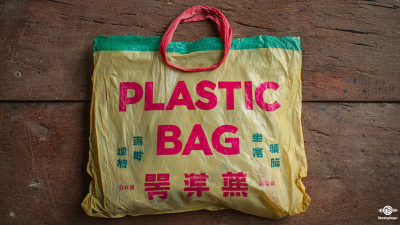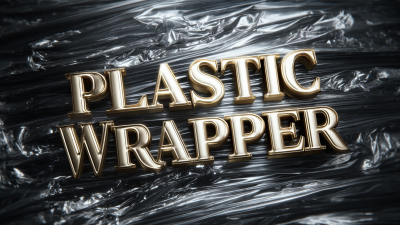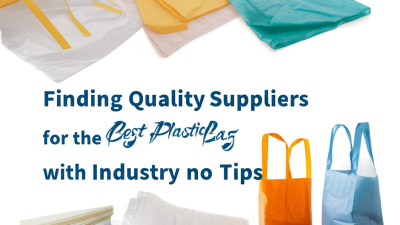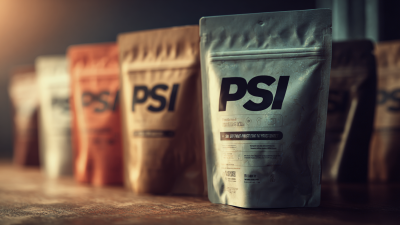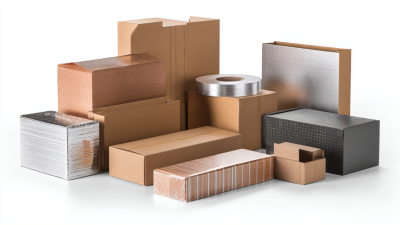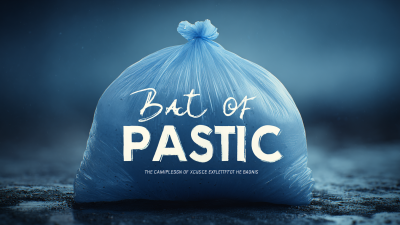- Phone:+86 15218629499
- Phone: +86 15766990063
- E-mail: Yzprinting01@163.com
 In today's fast-paced packaging industry, the demand for efficient and reliable solutions has never been greater. According to a recent market research report by Mordor Intelligence, the global plastic packaging market is expected to reach over $500 billion by 2025, highlighting the crucial role of innovative packaging solutions like Plastic Wrappers. These versatile materials not only provide essential protection for products but also enhance shelf life and reduce waste, making them indispensable over various sectors, including food, pharmaceuticals, and consumer goods. As businesses strive to meet both consumer expectations and sustainability goals, selecting the right Plastic Wrapper becomes vital. This guide explores the ten best Plastic Wrapper solutions tailored to diverse packaging needs, ensuring that manufacturers can optimize their production processes while adhering to emerging environmental standards.
In today's fast-paced packaging industry, the demand for efficient and reliable solutions has never been greater. According to a recent market research report by Mordor Intelligence, the global plastic packaging market is expected to reach over $500 billion by 2025, highlighting the crucial role of innovative packaging solutions like Plastic Wrappers. These versatile materials not only provide essential protection for products but also enhance shelf life and reduce waste, making them indispensable over various sectors, including food, pharmaceuticals, and consumer goods. As businesses strive to meet both consumer expectations and sustainability goals, selecting the right Plastic Wrapper becomes vital. This guide explores the ten best Plastic Wrapper solutions tailored to diverse packaging needs, ensuring that manufacturers can optimize their production processes while adhering to emerging environmental standards.
Eco-friendly packaging has become a critical focus for businesses looking to minimize their environmental impact. According to a recent report by Smithers Pira, the global sustainable packaging market is expected to reach $500 billion by 2027, driven by increasing consumer demand for greener options. Within this landscape, plastic wrappers designed with sustainability in mind are gaining traction, providing both functionality and an eco-conscious image.
Among the top eco-friendly plastic wrapper options, biodegradable films made from renewable resources, such as PLA (polylactic acid), are emerging as popular choices. These materials can decompose within months under industrial composting conditions, significantly reducing plastic waste. Furthermore, studies indicate that the use of recycled plastics in wrapper production not only lowers carbon emissions by up to 30% but also supports a circular economy model. Brands that invest in these sustainable practices are likely to enhance their market appeal, as recent surveys show that 73% of consumers favor products with environmentally friendly packaging.
This chart displays the sustainability ratings of the top eco-friendly plastic wrapper options available for packaging needs. Each option is rated on a scale from 1 to 10 based on its environmental impact and recyclability.
In today’s competitive market, maintaining product freshness is crucial for consumer satisfaction and brand loyalty. Innovative plastic wrapper materials have emerged as game-changers in the packaging industry, effectively preserving the quality of various products while enhancing shelf appeal. Materials such as biodegradable films and enhanced barrier plastics not only protect products from external contaminants but also extend their shelf life, reducing food waste and promoting sustainability.
One of the most promising advancements is the use of multi-layer films that combine different polymers to create a barrier against moisture and oxygen. These films are engineered to provide optimal protection for food items, ensuring that flavors, textures, and nutrients remain intact even during prolonged storage. Additionally, smart packaging technologies, like oxygen-absorbing sachets incorporated within the wrappers, can further enhance product freshness by actively scavenging harmful oxygen that leads to spoilage. With these innovative solutions, businesses can confidently meet their packaging needs while offering consumers products that are fresher for longer.
| Material Type | Thickness (microns) | Barrier Properties | Applications | Sustainability |
|---|---|---|---|---|
| Polyethylene (PE) | 30-200 | Good moisture barrier | Food products, consumer goods | Recyclable |
| Polyvinyl Chloride (PVC) | 50-300 | Excellent oxygen barrier | Healthcare, food packaging | Recyclable with limitations |
| BOPP (Biaxially Oriented Polypropylene) | 30-60 | Good moisture and grease barrier | Snack food, confectionery | Recyclable |
| Polyamide (Nylon) | 30-200 | Excellent puncture resistance | Vacuum packaging, meat | Limited recyclability |
| Cellophane | 25-50 | Biodegradable, good gas barrier | Confectionery, bakery | Biodegradable |
| PLA (Polylactic Acid) | 50-200 | Good moisture barrier, biodegradable | Fresh produce, takeaway food | Biodegradable |
| PP (Polypropylene) | 30-100 | Good moisture and heat resistance | Dairy, meat, ready-to-eat meals | Recyclable |
| EVA (Ethylene Vinyl Acetate) | 50-150 | Excellent flexibility | Flexible packaging, bags | Recyclable with limitations |
| PET (Polyethylene Terephthalate) | 75-300 | Excellent clarity and moisture barrier | Beverages, snacks | Recyclable |
Choosing the right plastic wrapper for your products is crucial for ensuring quality, safety, and customer satisfaction. According to a recent report by Smithers Pira, the global flexible packaging market is anticipated to grow by 3.5% annually, reaching approximately $300 billion by 2025. This highlights the increasing demand for effective packaging solutions, including plastic wrappers. When selecting a wrapper, it’s essential to consider factors such as material type, thickness, and barrier properties, which can significantly affect the product's shelf life and protection against external elements.
Moreover, leveraging the right plastic wrapping technology can enhance product presentation while reducing waste. The World Packaging Organisation pointed out that innovative wrapping solutions not only attract consumers but also play a vital role in sustainability. For instance, biodegradable and recyclable options have gained momentum, responding to the rising consumer preference for eco-friendly products. Businesses should analyze their product characteristics and environmental impact to make informed decisions, ensuring that their packaging not only meets regulatory standards but also resonates with the values of today’s environmentally conscious consumers.

Creative packaging can significantly enhance brand appeal, especially when utilizing plastic wrappers in innovative ways. One effective method is to incorporate vibrant colors and unique prints on your packaging. Eye-catching designs not only attract customers but also create a memorable brand image. For instance, using a matte finish combined with bold graphics can elevate your product on the shelf, making it stand out from competitors.
 Another creative idea is to leverage the versatility of plastic wrappers for functional packaging features. Consider incorporating resealable closures or tamper-evident options that not only provide convenience but also communicate quality and safety to your consumers. This functional design can significantly impact customer satisfaction, as it demonstrates attention to detail and enhances the overall user experience.
Another creative idea is to leverage the versatility of plastic wrappers for functional packaging features. Consider incorporating resealable closures or tamper-evident options that not only provide convenience but also communicate quality and safety to your consumers. This functional design can significantly impact customer satisfaction, as it demonstrates attention to detail and enhances the overall user experience.
Additionally, think outside the box by using plastic wrappers in sustainable ways. Biodegradable or recyclable materials can appeal to environmentally conscious consumers and set your brand apart. Highlighting the eco-friendly aspects of your packaging on the wrapper itself can resonate deeply with your audience and help build long-lasting loyalty. Incorporating these creative solutions can transform ordinary packaging into a tool for enhancing brand visibility and appeal.
As we look towards the future of plastic wrapping, several innovative trends and technologies are shaping the landscape of packaging solutions. One of the most prominent movements is the push for sustainable materials. By 2025, the industry is expected to see a significant shift towards lightweight and biodegradable options, alongside advanced composites that enhance both durability and eco-friendliness. This reflects a growing awareness of the environmental impact of traditional plastic packaging and aligns with global goals for reducing plastic waste.
Another trend redefining the packaging sector is the integration of smart materials. These materials not only serve their primary purpose of protection but also incorporate functionalities such as tracking, which can provide data on product conditions and enhance supply chain transparency. Additionally, advancements in 3D printing are revolutionizing custom packaging solutions, allowing for tailored designs that reduce excess material use.
As we navigate these exciting developments, the notion of “circular strategies” is gaining traction, emphasizing the importance of reusing materials and moving towards fossil-free options by 2050. The ongoing evolution in this field promises a future where packaging not only meets practical needs but also supports environmental sustainability initiatives.
